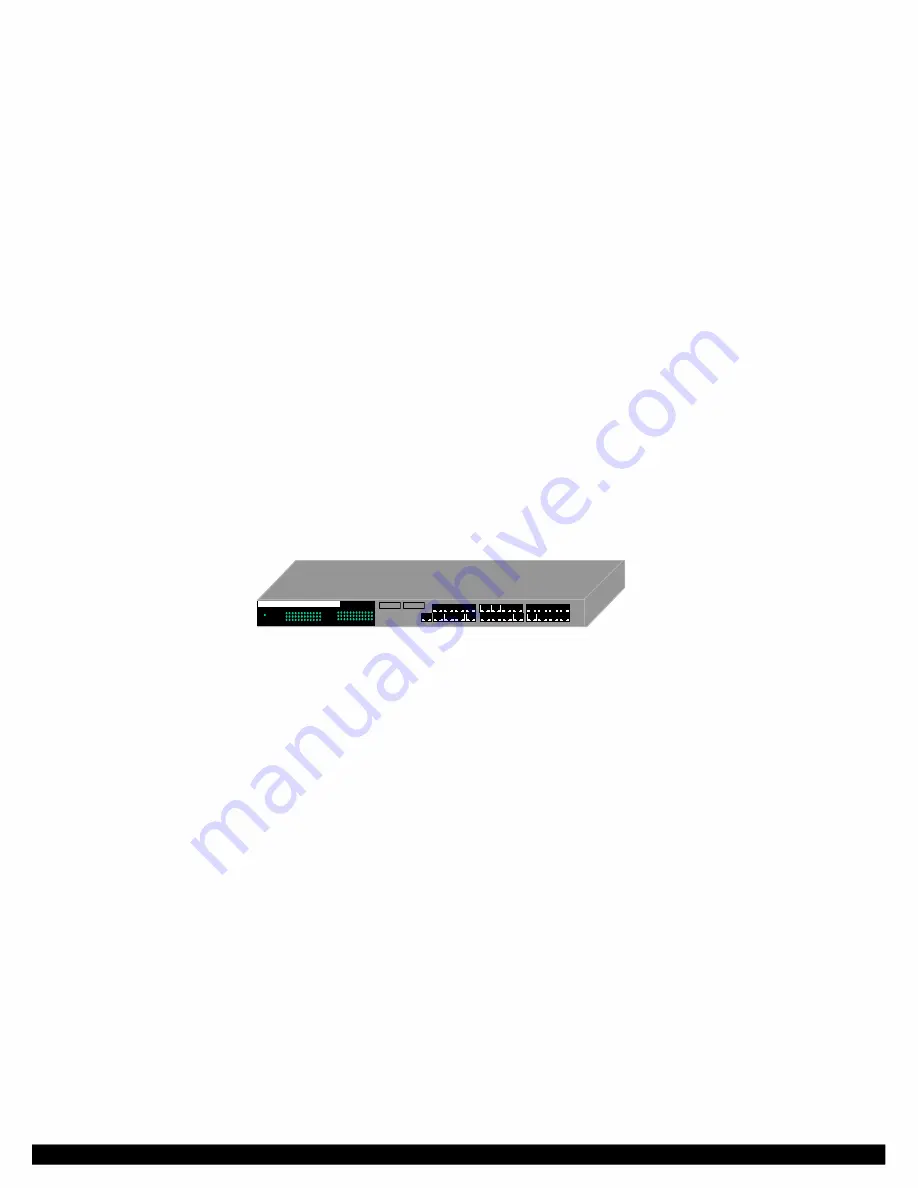
each 100Mb port and a proper Link (LK lit) must be made with the device at the other
end of the cable in order for the LK LEDs to provide valid indications of operating
conditions.
2.2.5 4K24C, 10/100 F/H dual-speed switched ports, RJ-45 (copper only)
The RFL 3000 4K24C copper has 24 ports that are dual speed 10/100Mb
switched RJ-45 ports Auto-negotiating. The 10/100Mb switched ports are independently
N-way auto-negotiating for operation at 10 or 100Mb speed in full- or half-duplex mode
(as a default setting). They independently move to half-duplex mode at 10 Mb or at
100Mb speed if the device at the other end of the twisted pair cable is half-duplex or is
not an auto-negotiating device.
There are three LED’s for each port. The LK/Act (Link/Activity) steady ON
indicates Link with no traffic, and blinking indicates the port is receiving and
transmitting. The Speed LED indicates operation at 100Mb speed when ON and at 10 Mb
speed when OFF (when auto-negotiation is enabled). The Fdx/Col LED is ON to indicate
full-duplex operation and OFF to indicate half-duplex mode and collisions. A twisted pair
cable must be connected into each RJ-45 10/100Mb port and a proper Link (LK lit) must
be made with the device at the other end of the cable in order for the LEDs to provide
valid indications of operating conditions.
2 4X 6 8 10 12 14 16 18 20 22 24
1X 1 3X 5 7
9 11 13 15 17 19 21 23
Magnum 4016C Switch
100M
Col/FDX
Link/Act
Power
100M
Col/FDX
Link/Act
2.2.6 Frame Buffering and Latency
The RFL 3000 4K24F or 4K24C are store-and-forward switches. Each frame (or packet)
is loaded into the Switch’s memory and inspected before forwarding can occur. This
technique ensures that all forwarded frames are of a valid length and have the correct
CRC, i.e., are good packets. This eliminates the propagation of bad packets, enabling all
of the available bandwidth to be used for valid information.
While other switching technologies such as "cut-through" or "express" impose
minimal frame latency, they will also permit bad frames to propagate out to the Ethernet
segments connected. The "cut-through" technique permits collision fragment frames,
which are a result of late collisions, to be forwarded to add to the network traffic. Since
there is no way to filter frames with a bad CRC (the entire frame must be present in order
for CRC to be calculated), the result of indiscriminate cut-through forwarding is greater
traffic congestion, especially at peak activity. Since collisions and bad packets are more
likely when traffic is heavy, the result of store-and-forward operation is that more
bandwidth is available for good packets when the traffic load is greatest.



























